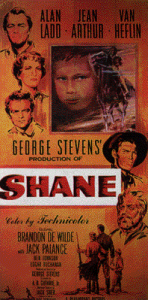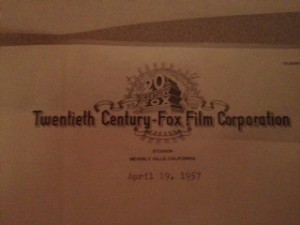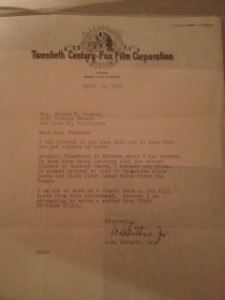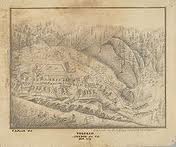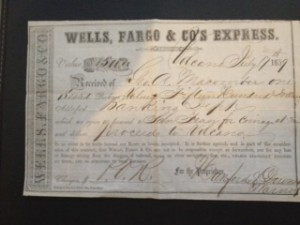A. B. Guthrie the western writer known for his novels Big Sky and the Pulitzer Prize winning The Way West also wrote for the movies. For example, Guthrie was credited for the screenplay for the 1953 Paramount film Shane based on the novel by the same name by Jack Schaefer.
Guthrie was nominated for an Academy Award for this screen play. Guthrie also wrote the screenplay for the 1955 Burt Lancaster film The Kentuckian. This movie is an adaptation of the novel The Gabriel Horn by Felix Holt.
Guthrie is not known, however, for writing the screenplays for any of his own books. When I was preparing for the recent Museum of Printing History Book Fair, I was surprised to see a letter from Guthrie on the letterhead of Twentieth Century Fox Film Corporation.
Musical aside: Yes, I am a child of the 60s and so the mere mention of this motion picture studio’s name causes the Doors song of the same name to play in my head. Thanks Jim Morrison!
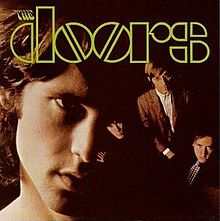
Does this happen to anyone else?
Anyway, back to the Guthrie letter.
In the April 1957 letter Guthrie responds to a fan letter asking about his next book. I can relate to this fan, as I hate to have to wait for a favorite author to finish her next book (come on Louise Penny, write faster!) Guthrie’s response is that he is in Hollywood (see the letterhead) and working on the screenplay for his novel These Thousand Hills, which was published in 1956. While this book was released as a film in 1959 (two years after the date of this letter), Guthrie is not credited with the screen play, which is by the Englishman Alfred Hayes.
Of course, under the somewhat arcane (at least to me) rules of screenwriting, it is unclear if any of Guthrie’s attempts at a script may have made it into the final movie, or whether he suffered from Charlie Kaufman-like difficulties in crafting an Adaptation. But it is interesting to see he was asked to take a shot at it first, and that he was apparently unsuccessful, despite his past success in adapting the works of other authors.
To me this letter is an unexpected pleasure, giving an interesting side-light on Guthrie’s Hollywood career.

